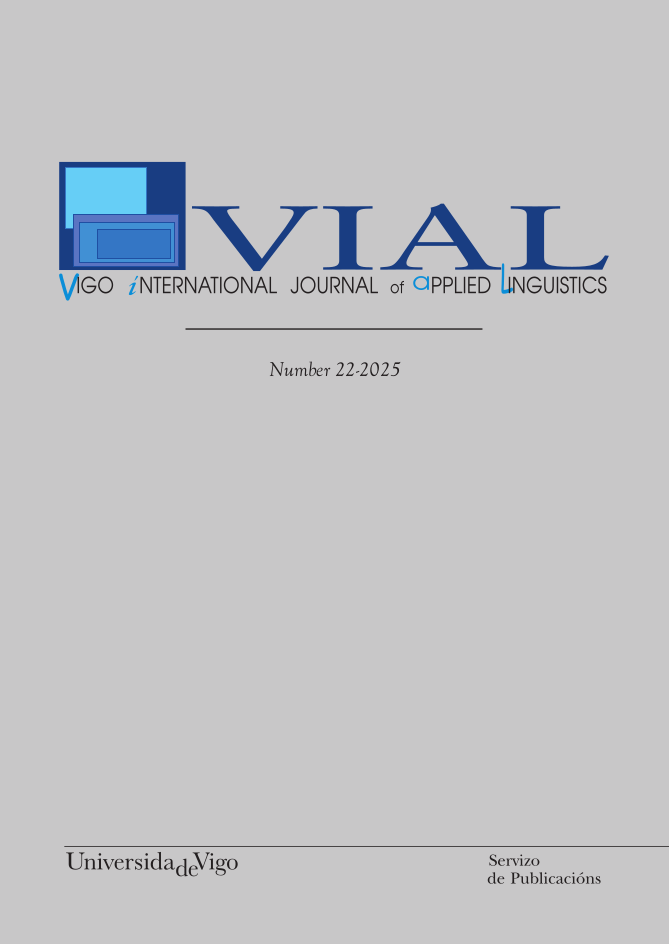Assessing the impact of the metacognitive pedagogical cycle on adult EFL learners’ proficiency and awareness: Evidence from Chilean classrooms
DOI:
https://doi.org/10.35869/vial.v0i22.3039Palabras clave:
metacognitive pedagogical cycle, listening comprehension, process-based approach, metacognitive awareness, EFL learningResumo
The benefits of metacognitive instruction for the improvement of students’ L2 listening comprehension and metacognitive awareness have been documented in the literature. However, it is necessary to evaluate the impact of a process-based approach such as the metacognitive pedagogical cycle (MPC) on less-skilled English as a foreign language (EFL) learners in contexts with reduced out-of-classroom interaction. Therefore, the present quasi-experimental study sought to assess the impact of the MPC on the listening comprehension and listening metacognitive awareness of 75 low-proficiency adult EFL learners. Participants were divided into an experimental group, which received MPC instruction, and a control group that received regular listening instruction over a twelve-week period. Pre- and post-listening proficiency and metacognitive awareness test results revealed that the experimental group significantly increased their proficiency and metacognitive awareness scores in a more consistent and robust manner than the control group. Additionally, learners who were exposed to MPC instruction outperformed the control group in almost all aspects of metacognitive awareness. Results indicated that less skilled learners could benefit from a metacognitive approach to listening instruction in the selected EFL setting. Pedagogical implications are discussed.
Descargas
Descargas
Publicada
Número
Sección
Licenza
Libros UVigo é o portal de publicación en acceso aberto das revistas da Universidade de Vigo. A posta a disposición e comunicación pública das obras no portal efectúase baixo licenzas Creative Commons (CC).
Para cuestións de responsabilidades, propiedade intelectual e protección de datos consulte o aviso legal da Universidade de Vigo.



